 | TODAY IN SCIENCE HISTORY NEWSLETTER - 22 JANUARY |
| Book of the Day | ||
|
| Quotations for Today | |
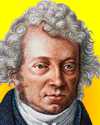 | Either one or the other [analysis or synthesis] may be direct or indirect. The direct procedure is when the point of departure is known-direct synthesis in the elements of geometry. By combining at random simple truths with each other, more complicated ones are deduced from them. This is the method of discovery, the special method of inventions, contrary to popular opinion. |
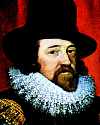 | Ipsa Scientia potestas est. For also knowledge itself is power. |
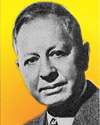 | Science cannot stop while ethics catches up ... and nobody should expect scientists to do all the thinking for the country. |
| Quiz | |
| Before you look at today's web page, see if you can answer some of these questions about the events that happened on this day. Some of the names are very familiar. Others will likely stump you. Tickle your curiosity with these questions, then check your answers on today's web page. | |
| Births | |
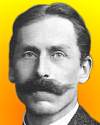 | A German physicist, born 22 Jan 1865, was probably the most skillful experimental spectroscopist of his time. In 1895, he studied the spectrum of the newly discovered terrestrial element, helium. It matched identically the solar helium discovered by Janssen and Lockyer. In 1908, he discovered a new series of lines in the hydrogen spectrum, now known by his name. Can you name this scientist? Can you name this scientist? |
 | Andr�-Marie Amp�re, born 22 Jan 1775, was a French mathematician and physicist who founded and named the science of electromagnetism. His interests also included mathematics, metaphysics, physics and chemistry. In 1811, he suggested the name of one of the halogens. What is the name of the halogen he suggested? What is the name of the halogen he suggested? |
| Deaths | |
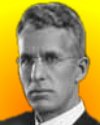 | Albert Wallace Hull (1880-1966) was an American physicist who independently discovered the powder method of X-ray analysis of crystals (1917) and did work on electron tubes. He invented the first form of a magnetron (1921) which was tested as an amplifier in radio receivers and also as a low-frequency oscillator. An improved form of magnetron is now found in many homes serving what function? An improved form of magnetron is now found in many homes serving what function? |
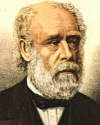 | Sir Joseph Whitworth (1803-1887) was an English mechanical engineer who won international recognition as a machine toolmaker. He built machinery of high accuracy, and introduced standardization. His name is remembered the abbreviation BSW (British Standard Whitworth). To which items is the BSW description applied, as long commonly used in the UK? To which items is the BSW description applied, as long commonly used in the UK? |
| Events | |
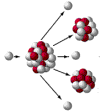 | On 22 Jan 1939, the uranium atom was split for the first time using an accelerator at Columbia University in New York City. Thus began the Manhattan Project, leading to the construction of the atom bomb. What type of accelerator was used for the first-ever fission experiment? What type of accelerator was used for the first-ever fission experiment? |
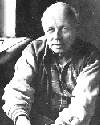 | On 22 Jan 1980, a Soviet dissident physicist, often called father of the Soviet hydrogen bomb, was arrested, stripped of his honors and exiled from Moscow to Gorky. Since the 1960s, he had been outspoken about the dangers of nuclear testing and human rights. Can you name this scientist? Can you name this scientist? |
| Answers |
| When you have your answers ready to all the questions above, you'll find all the information to check them, and more, on the January 22 web page of Today in Science History. Or, try this link first for just the brief answers. Fast answers for the previous newsletter for January 21: a rack of Indian-canoe paddles • nitrous oxide • telephone • investigating the irregularities in the motion of Uranus • magnesium • decade including the year 1954. |
| Feedback |
 If you enjoy this newsletter, the website, or wish to offer encouragement or ideas, please send feedback by using your mail reader Reply button. If you enjoy this newsletter, the website, or wish to offer encouragement or ideas, please send feedback by using your mail reader Reply button. Your click on a StumbleUpon, Google+ or Facebook social button on the site webpages is also a welcome sign of appreciation. Thank you for using them. |
| Copyright |
| To find citations for quotations go to the corresponding webpage by clicking on the “quotes” balloon icon. Sources for the thumbnails appear on today's webpage with the corresponding item. � This newsletter is copyright 2014 by todayinsci.com. Please respect the Webmaster's wishes and do not put copies online of the Newsletter � or any Today in Science History webpage. (If you already have done so, please remove them. Thank you.) Offline use in education is encouraged such as a printout on a bulletin board, or projected for classroom viewing. Online, descriptive links to our pages are welcomed, as these will provide a reader with the most recent revisions, additions and/or corrections of a webpage. For any other copyright questions, please contact the Webmaster by using your mail reader Reply button. |
--
If you do not want to receive any more newsletters, Unsubscribe
To update your preferences and to unsubscribe visit this link


Δεν υπάρχουν σχόλια:
Δημοσίευση σχολίου